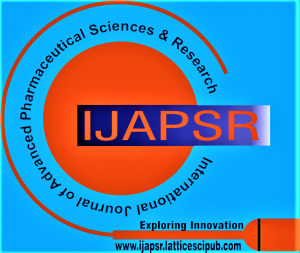![]()
Intermittent Fasting and Skin Health: Molecular Mechanisms and Clinical Implications
Zein Al-Abideen Douba1, Shereen Taha2
1Dr. Zein Al-Abideen Douba, Department of Biochemistry and Microbiology, Faculty of Pharmacy, Tishreen University, Lattakia, Syria.
2Ms. Shereen Taha, Department of Biochemistry and Microbiology, Faculty of Pharmacy, Al-Sham Private University (ASPU), Lattakia, Syria.
Manuscript received on 11 August 2025 | First Revised Manuscript received on 23 August 2025 | Second Revised Manuscript received on 18 September 2025 | Manuscript Accepted on 15 October 2025 | Manuscript published on 30 October 2025 | PP: 7-14 | Volume-5 Issue-6, October 2025 | Retrieval Number: 100.1/ijapsr.F409105061025 | DOI: 10.54105/ijapsr.F4091.05061025
Open Access | Editorial and Publishing Policies | Cite | Zenodo | OJS | Indexing and Abstracting
© The Authors. Published by Lattice Science Publication (LSP). This is an open-access article under the CC-BY-NC-ND license (http://creativecommons.org/licenses/by-nc-nd/4.0/)
Abstract: Objective: Intermittent fasting (IF) is a dietary pattern alternating between periods of eating and fasting, known for its metabolic, hormonal, and anti-inflammatory benefits. This review aims to explore the molecular, physiological, and clinical links between IF and skin health. Methods: A comprehensive review of recent preclinical and clinical literature was conducted, focusing on the effects of IF on skin biology, including modulation of oxidative stress, induction of autophagy, hormonal regulation, and interactions between the gut and skin. Results: Evidence suggests that IF may enhance skin regeneration, delay ageing, and improve inflammatory skin disorders such as acne, psoriasis, and eczema. Mechanistically, IF downregulates IGF-1 and mTOR signalling, enhances antioxidant defences, promotes autophagy, and modulates the immune response. Preliminary clinical findings also indicate potential benefits in photoaging, wound healing, and tissue repair. However, most data are preclinical, with limited human trials. Conclusion: IF represents a promising nonpharmaceutical strategy for improving skin health and managing dermatological conditions. Future research should focus on developing standardised protocols, molecular profiling, and assessing long-term safety in diverse populations.
Keywords: Intermittent Fasting; Skin Health; Autophagy; Inflammation; Dermatology.
Scope of the Article: Clinical Pharmacy
